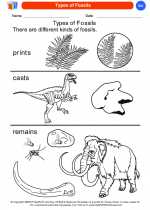Mutation
A mutation is a change in the DNA sequence of an organism. This change can occur in different ways and can have various effects on the organism. Mutations can be caused by a variety of factors, including exposure to certain chemicals, radiation, or even errors that occur during DNA replication.
Types of Mutations
There are several types of mutations that can occur:
- Point Mutation: This type of mutation involves a change in a single nucleotide in the DNA sequence. It can result in the substitution of one amino acid for another in a protein, which can affect the function of the protein.
- Insertion: An insertion mutation involves the addition of extra nucleotides into the DNA sequence. This can cause a shift in the reading frame and lead to significant changes in the resulting protein.
- Deletion: A deletion mutation involves the loss of nucleotides from the DNA sequence. Like an insertion mutation, this can also cause a shift in the reading frame and result in a different protein being produced.
- Frameshift Mutation: Frameshift mutations occur when the addition or deletion of nucleotides causes a shift in the reading frame of the DNA sequence. This can have dramatic effects on the resulting protein.
Effects of Mutations
Mutations can have various effects on an organism, depending on where in the DNA sequence they occur and what type of mutation takes place. Some mutations may have no noticeable effect, while others can lead to changes in the organism's physical characteristics, susceptibility to disease, or even its ability to survive and reproduce.
Study Guide
Here are some key points to remember when studying mutations:
- Understand the different types of mutations and how they occur.
- Learn about the potential effects of mutations on an organism.
- Be familiar with examples of mutations and their impact on living organisms.
- Explore the role of mutations in evolution and genetic diversity.
- Practice identifying mutations in DNA sequences and predicting their effects.
By understanding mutations and their significance, you can gain valuable insights into the mechanisms of genetic diversity and the potential implications for living organisms.
[Mutation] Related Worksheets and Study Guides:
.◂Science Worksheets and Study Guides Kindergarten. Our Earth

 Coloring Worksheet
Coloring Worksheet
 Coloring Worksheet
Coloring Worksheet
 Coloring Worksheet
Coloring Worksheet
 Coloring Worksheet
Coloring Worksheet
 Coloring Worksheet
Coloring Worksheet
 Coloring Worksheet
Coloring Worksheet
 Coloring Worksheet
Coloring Worksheet
 Coloring Worksheet
Coloring Worksheet
 Coloring Worksheet
Coloring Worksheet
 Coloring Worksheet
Coloring Worksheet
 Coloring Worksheet
Coloring Worksheet
 Coloring Worksheet
Coloring Worksheet
 Coloring Worksheet
Coloring Worksheet
 Coloring Worksheet
Coloring Worksheet
 Coloring Worksheet
Coloring Worksheet
 Coloring Worksheet
Coloring Worksheet
 Coloring Worksheet
Coloring Worksheet
 Coloring Worksheet
Coloring Worksheet
 Coloring Worksheet
Coloring Worksheet
